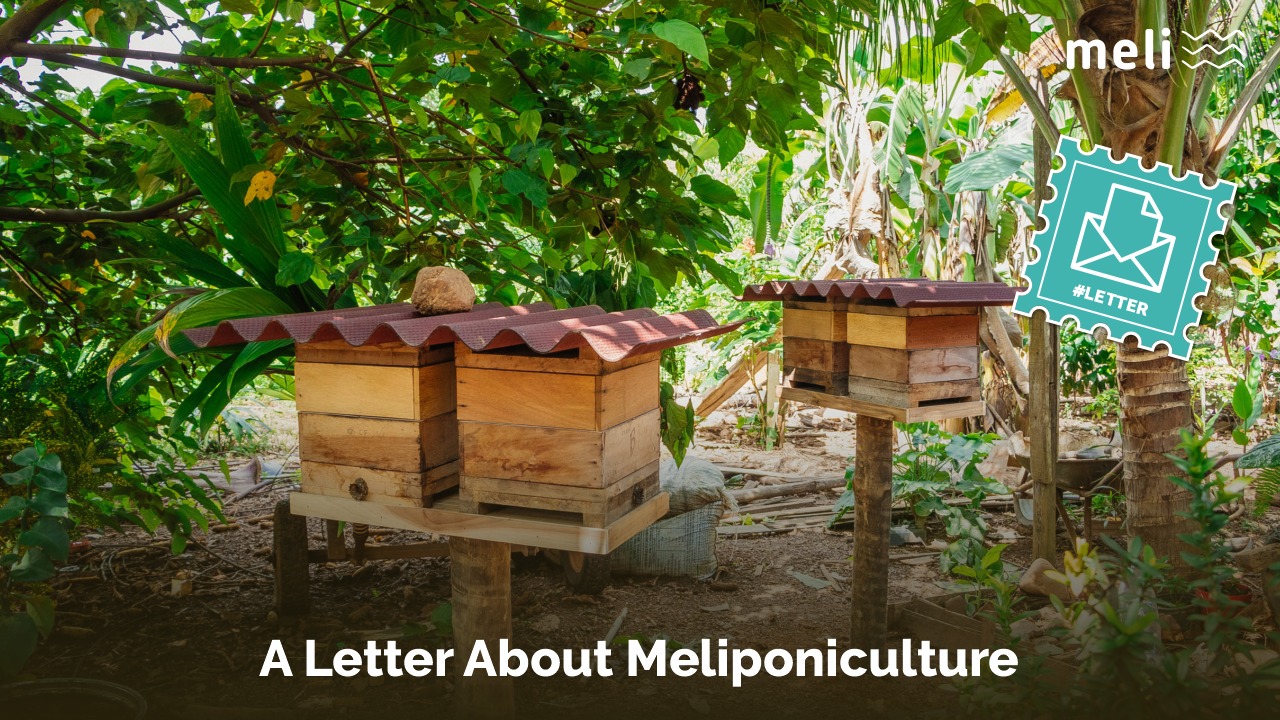Native beekeeping (meliponiculture) motivates and fascinates us. It is beautiful to see the strength of a network of native beekeepers, and it is moving to watch this network of regeneration flourish!
Pantoja Ramos, a socio-environmental consultant from the Federal State of Pará, has written a letter addressed to Mr. Richardson Frazão, the coordinator of the project Néctar da Amazônia, (Nectar from the Amazon), and published it on the website Recanto das Letras (Literary Corner):
Author: Carlos Augusto Pantoja Ramos
Leia em português. Auf deustch lesen.
Belém, 28th June 2015
Dear Richardson, my dear good friend,
Ever since I came to know your work on the breeding of native bees for the production of honey (with a difficult name to keep in mind at first, I must confess) while still at the Instituto Peabiru, I realized that here we had an age-old socio-environmental science that was decisive for helping us to reduce our immoderate activities that were harming the forests. I thus embraced native beekeeping, or ‘meliponiculture’, as a new social technology, but I then saw that I had been foolish in failing to recognize that we had underestimated the wealth of indigenous knowledge ever since the decades of military rule and even during the period of restoration of democracy in Brazil. And it is very true that our public policy has still not remedied this situation.
Here we had an age-old socio-environmental science that was decisive for helping us to reduce our immoderate activities that were harming the forests
When he spoke about bees, Albert Einstein hit the mark exactly on describing the arrogance of humanity in attacking biodiversity, in earning money and in assuming that we would not suffer any reactions from nature. However, it is becoming clear that the production of fruit is decreasing due to the action of pesticides and now of genetically modified crops, in spite of the insistent arguments of some people that there is no relationship between these. The worrying aspect of this scenario is its effect on trees in general. Nevertheless, you point out the correct path in your Manual of Native Beekeeping (Manual da Meliponicultura): A community of 30 native beekeepers traps 166 tons of carbon each year and helps to conserve 160 hectares of forest simply by assisting the pollination of the plants! Spot on!
As the main pollinizing agents of the trees in the Amazon Region, stingless bees such as the uruçú and the jandaíra (the most well-known of the genus Melipona sp) and their handling are only now beginning to be recognized more and more by the general public and by the organizations that support socio-environmental projects. This triumph belongs to you and to all those who fight under this banner, through many years of patient activism until your work was perceived as initiatives of social and economic transformation and of the struggle against deforestation.
This triumph belongs to you and to all those who fight under this banner, through many years of patient activism until your work was perceived as initiatives of social and economic transformation and of the struggle against deforestation
The Amazonian native beekeepers are also spreading their wings. I know that you are familiar with, and assist, the projects connected with indigenous organizations in the State of Amapá. I should let you know that there are at least ten projects that are supported by the Dema Fund and are oriented towards the development of native beekeeping in municipalities in the regions of Xingu and Baixo Amazonas and that by themselves alone they would constitute a robust network for the exchanging of experience as a means of perfecting this science to make it more widely known. Hence my suggestion: An inter-community network of native beekeepers.
We ought to think like the bees: to pollinate our minds so as to think that another world is possible, a world of diversity and balance, one that is more just, and much more interesting
Regarding this possible network, I should not omit to mention the work carried out by you in the community of Praia Verde, in Almeirim, which could be included in this list of organizations that defend the breeding of native bees. I was there between the 19th and 21st of June 2015 and was surprised by the skill of the local community members in explaining the techniques and by the small “city” of the stingless bees in the possession of “their Marabá”. They are still not producing the quantity of honey that they would like to, since they are in the phase of consolidating the hives, but a fact told to us by the gentleman who received us indicated the dimension of the environmental and economic importance of this activity: “… the production of fruit, above all of açaí (a Brazilian palm fruit), has increased greatly since we started to breed native bees”. You can just see how interesting it is to combine bees and açaí, so there you go: If it were up to me, the management of native açaí forests would go hand-in-hand with native beekeeping, not only because of the açaí but also in order to guarantee the reproduction of other plants and thus enrich the flora, which then has a good effect on the fauna and, yet again, on the eyes of those who will come after us.
All in all, what I have learned from your art (yes, because I do regard it as an art) is that we ought to think like the bees: to pollinate our minds so as to think that another world is possible, a world of diversity and balance, one that is more just, and much more interesting.
This is what I have written to our learned friends.
Pantoja Ramos
Your donation can have a positive impact on the world!
Subscribe to receive our Newsletter!
Find us also at Linkedin, Facebook, Twitter or Instagram
www.meli-bees.org
❤️


4 Replies to “A Letter About Meliponiculture”